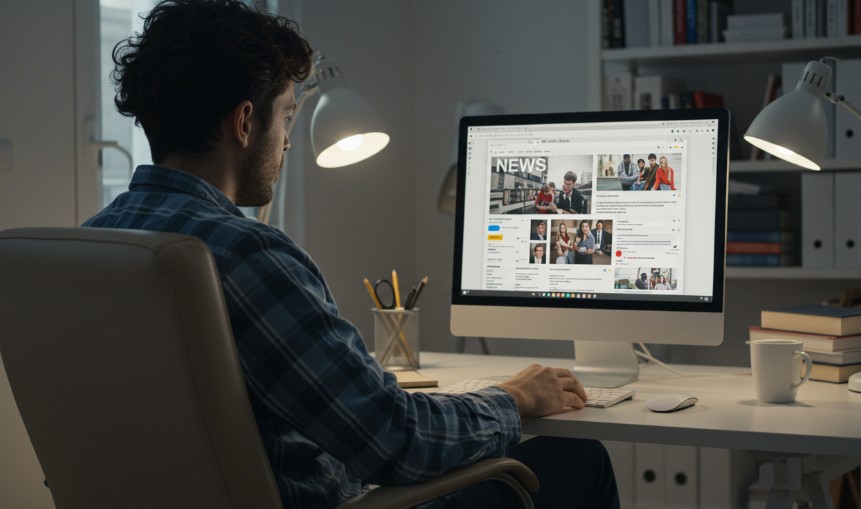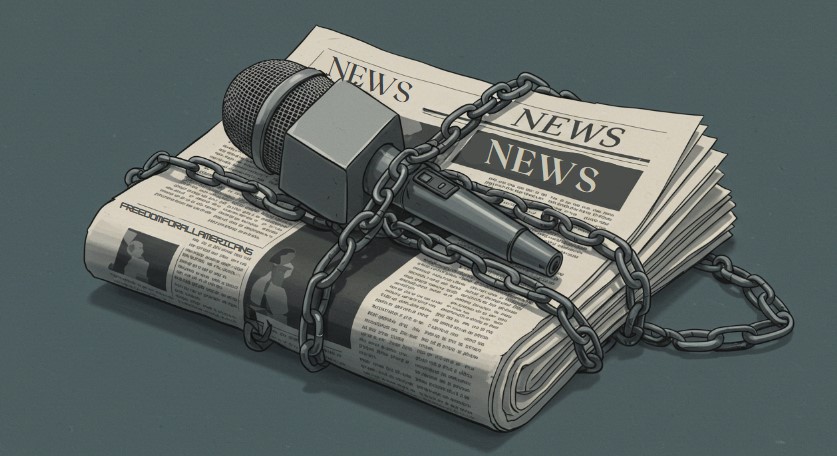In the United States, the idea that anyone can report on what’s happening, ask tough questions, and publish stories, even ones that challenge those in power, is not just a tradition. It’s a constitutional right.
Freedom of the press, enshrined in the First Amendment, gives individuals and institutions the legal space to speak freely, publish without government interference, and serve as watchdogs for the public.
But what does that actually mean in everyday life? And how does it play out in a world of 24-hour news, social media, and increasing mistrust?
Let’s take a closer look, starting with where it all began.
Table of Contents
ToggleThe Origins of Press Freedom in America
Before the United States was even a country, press freedom was already being fought for in courtrooms and printing shops.
Back in 1734, John Peter Zenger, a New York newspaper publisher, was arrested for printing articles that criticized the colonial governor. At the time, you could be punished for speaking ill of the government, even if what you said was true.
But Zenger’s trial turned into a defining moment. His lawyer argued that no one should be punished for publishing the truth. The jury agreed. That acquittal didn’t just save Zenger, it planted the seed for what would become one of the most important freedoms in American life.
When the Bill of Rights was ratified in 1791, that seed became law. The First Amendment clearly states:
“Congress shall make no law… abridging the freedom of speech, or of the press.”
That short line carries enormous weight. It guarantees that people—and the organizations they create—can report, publish, and distribute ideas without censorship from the government.
But like most constitutional rights, it took a series of legal battles to define what that freedom actually protects.
Key Legal Cases That Shaped Press Freedom

Near v. Minnesota (1931)
This case laid the groundwork. The Supreme Court ruled that “prior restraint”—when the government tries to stop something from being published in advance—is almost always unconstitutional.
There are a few exceptions (like truly urgent national security threats), but overall, the decision made clear: the press can’t be gagged before it speaks.
New York Times Co. v. Sullivan (1964)
One of the most powerful tools public officials used to silence criticism was the libel lawsuit. This case changed that.
The Court said that if a public figure sues for libel, they must prove the publisher acted with “actual malice”—meaning they knowingly lied or recklessly ignored the truth.
That set a high bar, protecting journalists who report on powerful people, even if their stories are controversial or critical.
New York Times Co. v. United States (1971)
Also known as the Pentagon Papers case, this was a turning point for investigative journalism.
The Nixon administration tried to block the New York Times and the Washington Post from publishing leaked documents about the Vietnam War. The Supreme Court sided with the newspapers. Justice Hugo Black famously wrote:
“The press was to serve the governed, not the governors.”
That single sentence captures the entire spirit of press freedom.
Why the Press Matters in a Democracy

Press freedom isn’t just about letting reporters do their jobs. It plays an active role in how democracy functions. Here’s how:
Holding Power to Account
Investigative journalism exposes what’s hidden. Watergate. The Pentagon Papers. The Catholic Church abuse scandal.
None of those stories would have seen daylight without a free press. When the press is independent, it can ask uncomfortable questions—and keep elected officials honest.
Encouraging Public Debate
Newspapers, TV, and online platforms provide space for a range of views. That open exchange—the so-called “marketplace of ideas”—helps people weigh options, challenge assumptions, and participate in civic life.
Documenting History as It Happens
News outlets are the first historians. They record events in real time, creating a public record that shapes how future generations understand the past. Whether it’s a presidential speech or a protest in a small town, journalists are often the ones capturing the moment.
What the First Amendment Protects—and Where It Stops
@acluThe First Amendment protects everyone’s right to criticize the government without fear of retribution.
Freedom of the press in the U.S. is broad, but not boundless. Courts have made it clear: there are some limits.
| Legal Area | What It Means |
| Prior Restraint | The government usually can’t stop publication in advance. |
| Libel & Defamation | Public figures must prove “actual malice” to win lawsuits. |
| Privacy | Publishing private, sensitive details about someone can bring legal trouble. |
| Access to Info | The press doesn’t have special access to government information. |
| Shield Laws | Some states protect journalists from revealing sources—but there’s no federal shield law. |
The press can record in public, attend open government meetings, and request documents through the Freedom of Information Act. But they’re not above the law. If a journalist trespasses or breaks into a secure facility to get a story, they can be prosecuted like anyone else.
Still, laws targeting the press—especially ones that punish certain media outlets or restrict what can be published—tend to face tough scrutiny in court.
Modern-Day Press Challenges

The media landscape today looks nothing like it did even 20 years ago. And that’s changed what press freedom looks like in practice.
Surveillance and Whistleblowers
Government agencies have expanded surveillance capabilities—especially post-9/11. Journalists have reported being monitored, and whistleblowers face harsh punishment. Edward Snowden’s leak about NSA spying is a prime example. He’s still in exile, and the journalists who worked with him had to fight hard to protect their sources. That kind of pressure can discourage investigative reporting.
The Social Media Dilemma
Social platforms like Facebook, X (formerly Twitter), and YouTube aren’t technically the press—but they’ve become major gateways to the news. They also decide what gets seen or taken down. That creates a strange gray area. They’re private companies, so they’re not bound by the First Amendment. But when they remove content or ban users, it can feel like censorship, sparking fierce debates about what role they should play in shaping public discourse.
The Business of Journalism Is in Trouble
Local newspapers are vanishing. Ad revenue is drying up. Big media outlets are merging. All of this weakens the diversity of voices and makes it harder for independent newsrooms to survive. In small towns especially, people are left without anyone covering city council meetings, school board decisions, or local corruption.
Trust and Skepticism – How the Public Sees the Press
Americans still believe in the press’s role as a watchdog—but many are skeptical of how that job is being done.
Surveys from the Freedom Forum show that while most people support press freedom in principle, trust in specific outlets often splits along political lines. Right-leaning audiences may distrust legacy media like CNN or The New York Times, while left-leaning readers might see outlets like Fox News as biased.
Social media makes it harder to tell what’s legitimate. A polished blog post can look like real journalism. But without editorial standards, fact-checking, or accountability, it’s not the same. The internet lets anyone act as “the press,” which is both a strength and a risk.
The First Amendment doesn’t require credentials. You don’t need a degree or a press badge to have your rights protected. That openness is part of the American promise—but it also makes credibility harder to measure.
Why It Still Matters, Maybe More Than Ever

Freedom of the press doesn’t just benefit journalists. It protects everyone’s right to be informed, to question authority, and to tell their own stories. Without it, a lot of what we know about our own government—wars, policies, failures, successes—might never have reached the public eye.
It’s not a coincidence that authoritarian regimes tend to silence the press first. When no one’s watching, abuse of power becomes easier. A free press keeps the lights on.
And even when the system is messy—when coverage feels biased, when outlets make mistakes—the alternative is far worse: silence.
A Few Things to Remember
- The First Amendment applies to everyone. Whether you’re an independent blogger, a local news anchor, or someone recording video at a protest—you’re covered.
- You can criticize the press—and still support its freedom. Healthy skepticism doesn’t mean dismantling protections.
- Strong press freedom depends on law—and public culture. Courts protect rights, but public support helps keep those rights alive in practice.
Final Words
Freedom of the press is one of those ideas that feels abstract until you need it. Until you want to know what’s really happening in city hall. Until someone you trust is speaking truth to power. Until a reporter risks their safety to bring a hidden story into daylight.
It’s easy to take for granted. But the right to ask questions—and publish the answers—is one of the most powerful tools a democracy can have.
And it’s ours to protect.








